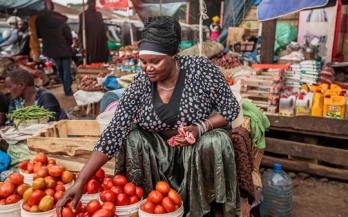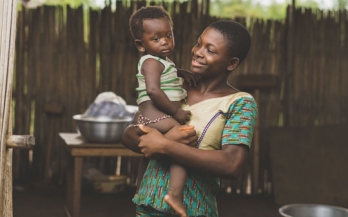Fighting malnutrition in all its forms is one of the major challenges of the 21st century. Addressing it will require an agricultural transformation. Within Africa, this must include a focus on small and medium-size farms, which provide about 80% of total calories in sub-Saharan Africa, as well as other small actors along the value chain.
Poor quality diets for young children after they stop exclusive breastfeeding is a major nutrition challenge in many countries. If the complementary foods provided to young children lack essential proteins, vitamins and minerals, it can hinder growth and development and make them vulnerable to illnesses.
On World Egg Day 2019, GAIN highlights the value and benefits of eggs for all. Providing a high-quality source of protein, eggs are among the most nutritious foods on earth. Their nutritional value is undeniable to people of all ages. For infant and children, eggs are among the best food sources as they contain nutrients which help brain development and physical growth.
GAIN works on supply and demand, as well as on changing incentives, rules and regulations to encourage production and consumption of nutritious and safe foods. We seek to understand and tackle barriers faced by small enterprises working to boost availability, affordability, desirability, and convenience of nutritious foods like eggs, especially for people on low-incomes.
This factsheet highlights the vastly different levels of egg supply seen across African regions, selected African countries, and selected high-income countries. It discusses why eggs remain scarce and expensive in many low-income settings, including across much of Western, Eastern, and Middle Africa.
Today is the United Nations International Youth Day, a day that recognises and celebrates the role that young people play in enhancing our global society. Young people have never been more vocal about their expectations of their leaders and the future they want to secure for themselves and the next generation.
A market assessment was conducted in Mozambique in 2015 across eight market hubs strategically selected in different regions of the country. These results help propose a plan for effective monitoring of fortified foods on the market.
A focused ethnographic study (FES) was conducted as part of the programme evaluation for a project aimed at improving the nutrient adequacy of infant and young child diets in three districts of Sofala Province, Mozambique, through the delivery of micronutrient powder (MNP), called “VitaMais”, to children 6–23 months old and behaviour change interventions.
An endline survey was conducted as part of a programme evaluation for a project implemented by the Global Alliance for Improved Nutrition that aimed to improve complementary feeding practices through the delivery of micronutrient powder (MNP) and behaviour change communication activities to children 6–23 months old in three districts of Sofala Province, Mozambique.










